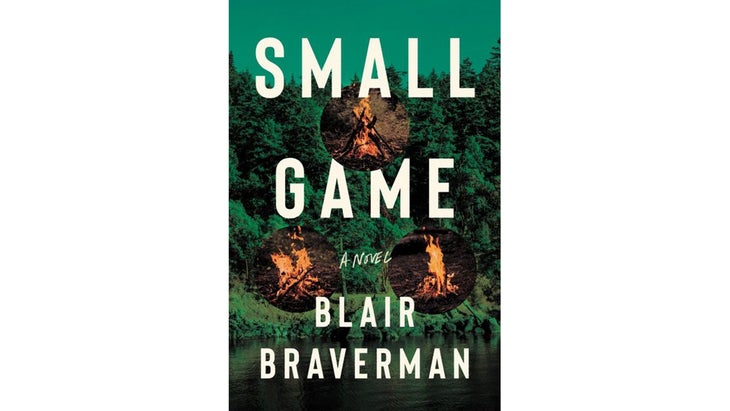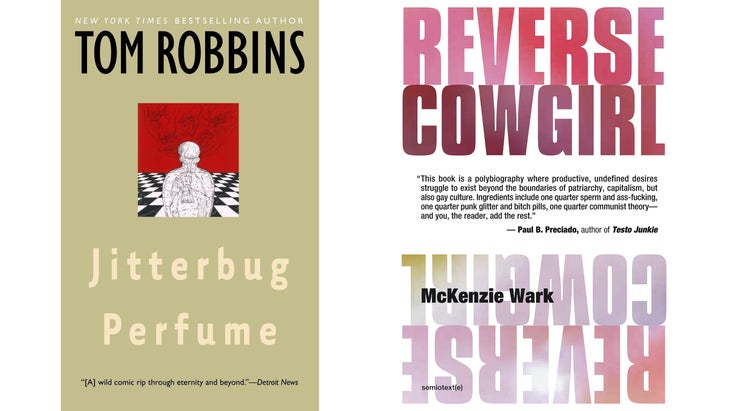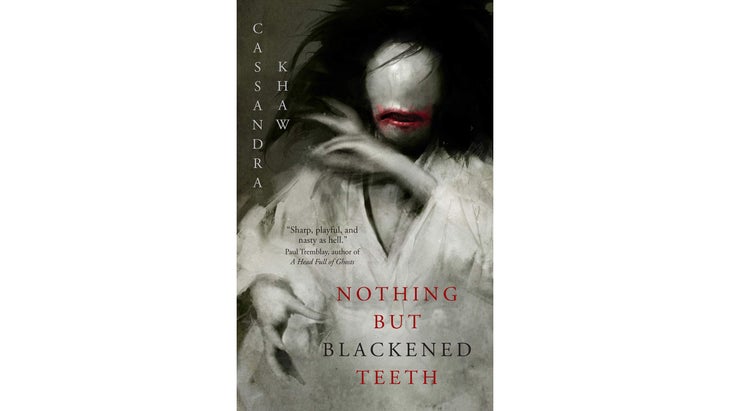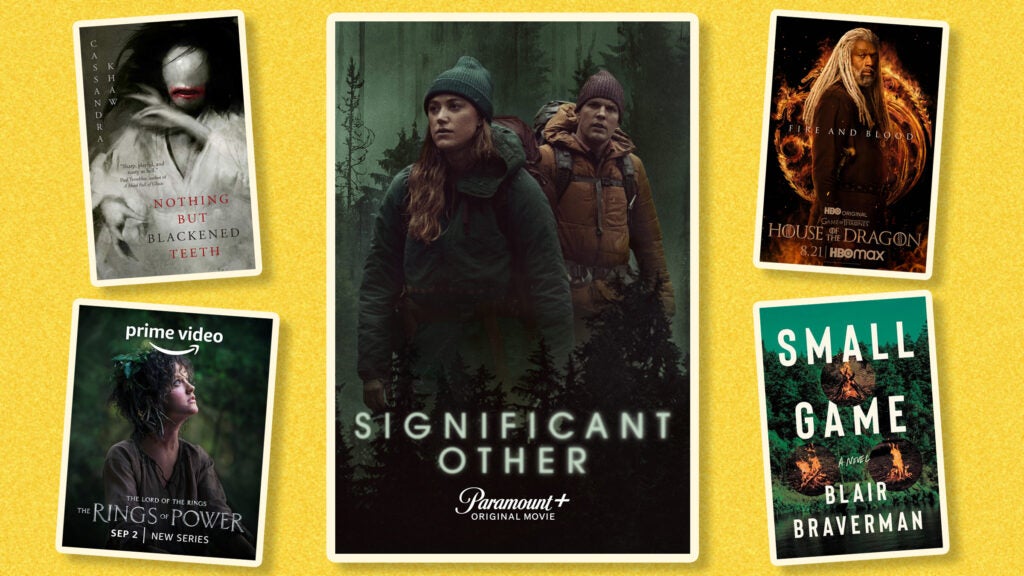No products in the cart.
Outdoor Adventure
The Backpacking Horror Film ‘Significant Other,’ and Everything Else Our Editors Loved in October
Outside editors were busy in October. We launched our Winter Gear Guide, published long reads about spiders, FKTs, and ponies, and organized a Q&A with acclaimed science writer David Quammen. In our free time, we kept up with the latest fantasy series, read contributing editor and Tough Love columnist Blair Braverman’s first novel, and combined our love for Halloween and the outdoors with our featured pick, forest horror film Significant Other. Here are all of the films, shows, and books we enjoyed this month.
October Featured Pick: Significant Other
Over Halloween weekend, my fiancée and I were looking for something to watch that was scary but not too scary. We stumbled upon Significant Other, an outdoorsy alien thriller streaming on Paramount+ starring Jake Lacy and Maika Monroe. It’s got all the tropes of “forest horror,” which contributing editor Tom Vanderbilt succinctly laid out in his recent ode to scary movies set in the wild: “The protagonists of the film, after first driving from some crowded urban setting, will soon find themselves on quieter roads. They will sing along to old songs on the radio. They will stop for gas or supplies in some greasy, fly-specked dive, where they encounter a cantankerous clerk whose face will assume a foreboding expression the minute they leave…In the woods, they will find there is no cell service.”
Well, in this case they encounter a creepy kid at a diner on the way to a trailhead on the Oregon Coast who warns them about a mysterious comet that landed in the area. Ignoring him, the couple sets out on a backpacking trip loop that Lac’ƒs nice-guy character, Harry, has done many times. He projects encouragement and confidence to his girlfriend, Ruth, who is inexperienced in the backcountry and full of nerves. It turns out, her anxiety is very much warranted. I won’t spoil it, but strange things start to happen in the woods and characters start behaving weirdly, yet not for the reasons you think—there is a great twist in the middle. The acting is decent, the portrayal of backpacking could be worse (though I’m not sure a fire grate or a large lantern would make the cut for my pack?), the scenery is in turn beautiful and terrifying (it was shot on site in Oregon), and the payoff is satisfying. The film ends up really being about how anxiety can feel suffocating and overpowering, but is not impossible to overcome. —Luke Whelan, senior editor
What We Watched
60 Minutes: “Sharswood”
CBS’s 60 Minutes recently produced a segment called “Sharswood.” It’s the amazing story of a Black family in Virginia who unwittingly bought a home on ten acres that they could use and enjoy for big family gatherings, only to discover that the shack on the property once housed their own enslaved ancestors. Sharswood, as the Civil War era house was called, was located on the site of a major former plantation. The intersection of history, genealogy, and archeology in this episode was fascinating—and it was fun to listen to family members relay how the past came to reveal itself via neighbors, scientists, and digging into old records—but also sobering. They learned about a slave cemetery just off their land, marked by tiny headstones between the leaves, that none of them even had an inkling existed in their many years in the community. “We all live in the same area, we come past this place, and we would not know that our ancestors were right there beside us the entire time,” the owner’s sister says, to which her brother chimes in: “If we’d never bought that house, we’d never know.” —Tasha Zemke, associate managing editor
Derry Girls
The last season of Derry Girls finally hit Netflix on October 7, and it was “cracker,” as they say in Northern Ireland, where the show is set. The TV comedy is about five teenagers living in mid-1990’s Derry during the final years of the Troubles, a violent sectarian conflict that began in the late 60’s. While the show premiered in 2018, I only started watching it in September, shortly after Queen Elizabeth’s death prompted some irreverent references to the series’ anti-imperialist jabs. The series is based on creator Lisa McGee’s own experience growing up in Derry, and effortlessly portrays the cringiness and high-voltage emotion of normal teenage girlhood, while also showing how bomb scares and military checkpoints inevitably shape the characters’ lives, too. With just 19 mostly-under-30-minute episodes over three seasons, the series goes by fast. I already miss it. —Isabella Rosario, assistant editor
House of the Dragon
Look, I realize that HBO needs no assistance in promoting its ten-part Game of Thrones prequel House of the Dragon, which aired the final episode of its debut season on October 23. By all audience metrics, the show was a smash hit, with viewership numbers hovering around 10 million for each episode, according to Nielsen. Still, I feel compelled to stan for House of the Dragon because of the opinion gap that appears to exist between regular Schmo viewers (myself included) and snooty TV critics. Pretty much everyone I know who watched the show enjoyed it, yet the online tastemakers whose opinions I truly value couldn’t stand it. Rolling Stone’s Alan Sepinwall says it was little more than “a calculated piece of brand extension for the newly-merged Warner Bros. Discovery.” On his weekly podcast The Watch, The Ringer critic Andy Greenwald said that the show had forever tarnished the Game of Thrones brand. “The series seems so stuck on what it doesn’t want to be that no part of it feels fully defined on its own terms,” writes Roxanna Hadadi of Vulture. I don’t know how else to express my opinion, so I’ll just write it in simple terms: these critics are wrong, and their opinions reek of coastal snobbery. Here in the flyover suburbs, TV viewing is merely entertainment and not a quest for the next great prestige program.
House of the Dragon has a basic if familiar format: it is a family drama in which all of the main characters play relatable roles to anyone with jealous siblings and crazy aunts and uncles. Frenemies and main characters Rhaenyra Targaryen (Emma D’Arcy) and Alicent Hightower (Olivia Cooke) are the overlooked-but-ambitious rivals. Brooding conspirators Daemon Targaryan (Matt Smith) and Otto Hightower (Rhys Ifans) are the dastardly and plotting uncles. And then there’s the poor king, Viserys Targaryen, who plays the role of Sad Dad and has one basic desire: for his warring family members to enjoy just one meal together without a sword fight breaking out. Sure, House of the Dragon has magic, castles, and plenty of fantasy tropes. But if you watch the show through the lens of family dysfunction, you too will come to appreciate it in a way that even the smartest TV critic somehow missed. —Frederick Dreier, articles editor
The Rings of Power
I’ll be honest, I wasn’t initially planning to watch The Rings of Power. I didn’t see how a series spawned partially from Jeff Bezos’s desire to compete with Game of Thrones could possibly do J.R.R. Tolkien’s Middle Earth justice. And the amount of money involved left me on guard for the shallow, money-grabbing spectacle many sci-fi and fantasy fans fear when their favorite works end up in the hands of massive corporations like Amazon. But when the show started up, I remembered how it felt to read The Lord of the Rings books and watch Peter Jackson’s adaptations (the extended editions, of course), and I couldn’t resist stepping back into that world. From the premiere, I was awed. The visuals alone are extraordinary—as they should be for the price—but it was the soul of the show, the charm of the characters, and the stakes of the story that kept me captivated. The show’s creators are clearly fans themselves, and though they messed with Tolkien’s timeline a bit to fit everything together for the series, they stayed true to all the little things that set the LotR universe apart. The result is a joy to watch. I look forward to catching the details I missed the first time on a rewatch, and memorizing a few Harfoot aphorisms for everyday use while I’m at it. —Jonathan Ver Steegh, digital production manager
What We Read

Small Game, by Blair Braverman
Outside columnist Blair Braverman’s debut novel hit shelves November 1. I was lucky enough to get my hands on an advance copy, which I tore through in two days. It’s about a survival reality TV show that goes terribly wrong, and though Blair says it bears no resemblance to her own time spent on a similar show, its realism is certainly a result of Blair’s ability to draw from her own life and supplement her experience with research. Filled with beautifully complex characters and settings, and wound tight with tension, it’s an addictive read that will make you question what it really means to survive. —Maren Larsen, podcast producer
I knew I loved Blair Braverman’s first novel when I stayed up until 2 A.M. (five hours past my bedtime) multiple nights in a row because I couldn’t put it down. The plot is engrossing: a group of folks sign up for a survival reality TV show, and then something goes terribly wrong—no spoilers here!—but it’s the 3-D characters that really make Small Game sing: Mara, the protagonist, who joins the show as a means of escaping a mediocre relationship, is exceptionally prepared for the challenges ahead after growing up with prepper parents. Ashley, the influencer, winds up being much more than a pretty face; Kyle the Eagle Scout is earnest to a fault and there to win; Bullfrog, the mysterious survivalist, has depths beyond his gruff exterior; and James, as Blair writes in the first chapter, “was the only one who got out in time.” The thoughtful character development, Blair’s descriptive writing, and the surprising plot twists make this a real page-turner. —Abigail Wise, digital managing director

Jitterbug Perfume, by Tom Robbins, and Reverse Cowgirl, by McKenzie Wark
This month, I read two amazing, wild books: Jitterbug Perfume, an old Tom Robbins novel about perfume, immortality, and the power of pleasure-seeking, and Reverse Cowgirl, a strikingly honest look at author McKenzie Wark’s relationship to sex and gender. Both are sexually explicit, entertaining, and thought provoking, but that’s where the similarities end. Robbins’ work is a multi-century epic about the quest for many things, including an escape from death and the finest scent the world has ever seen, written in his characteristically madcap, freewheeling style. Wark’s, on the other hand, is something like a memoir, in which Wark generously and patiently walks the reader through her cycle of repeatedly finding and losing herself in sex, and eventually discovering that she is trans. Neither are safe for work, both are worth a read. —Abigail Barronian, senior editor
‘Jitterbug Perfume’ ‘Reverse Cowgirl’

Nothing But Blackened Teeth, by Cassandra Khaw
I love short books for two reasons. One, they’re easy to slip into a backpack (or ski pack, or fanny pack, don’t judge) and take with me when I’m on an adventure. Two, I spend all day reading things for work and I find the idea of tackling a big novel right after I clock out for the day absolutely exhausting. Nothing But Blackened Teeth is perfect on both counts: at 128 pages, it’s a short, nasty little horror of a novella that’s perfect for spooky season. A group of friends with a very complicated history get together for a wedding in an abandoned Japanese manor and—hold onto your hats—disturb something they ought to have left alone. Desperation, betrayal, and some occasionally hard-to-stomach choices ensue. What I love most about writer Cassandra Khaw’s work is how skilled she is at creating a haunted atmosphere: her descriptions of worm-eaten books and sludge-choked koi ponds make the house itself feel like a monster. —Adam Roy, executive editor, Backpacker

